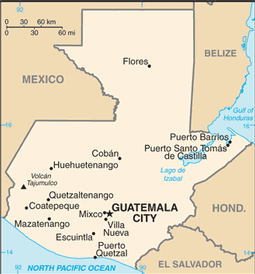Guatemalan President Otto Perez Molina has announced the Central American country will defy U.S. orders and decriminalize drugs to put an end to the U.S.-led drug war.
 “We are not doing what the United States says, we are doing what we have to do,” said Perez, who received a nod from Washington after being elected as a former military man with an “iron-fist” approach to crime. But now he’s surprised many with promises to end the drug war.
“We are not doing what the United States says, we are doing what we have to do,” said Perez, who received a nod from Washington after being elected as a former military man with an “iron-fist” approach to crime. But now he’s surprised many with promises to end the drug war.
Guatemala needs “to find alternate ways of fighting drug trafficking,” he said. “In the last 30 years with a traditional combat with arms and deaths, it can’t be done, and we have to be open to viable alternatives.” Perez plans to organize regional support for decriminalization throughout Latin America.
The U.S. Embassy in Guatemala issued a statement condemning the move and claiming decriminalization won’t fix the problem of drug trafficking and violent organized cartels. But Washington’s prohibitionist policies have caused drug profits to skyrocket and its support for undemocratic police states in Latin America has pushed cartels to build well-armed militias that give state armies a run for their money.
Drug war policies are even more blatantly counterproductive than that. Guatemala receives approximately $1oo million in aid annually from the U.S., despite a record of corruption and ties to the drug gangs. The former president, Alfonso Portillo, is in prison on charges of massive corruption. Scores of police chiefs, senior military commanders, and defense ministers have been in an attempt to crack down on security forces with drug-trafficking ties.
The Kaibiles, the ruthless U.S.-trained Guatemalan state militia infamous for their role in killing civilians during Guatemala’s civil war, are being recruited in large numbers to violent Mexican drug gangs. Mexico’s Zetas drug cartel is paying large sums to a multitude of Kaibiles forces to pass on the training they received from the United States military.
Such story lines are common in Latin America, and different for each country. The drug war has not only failed, but it has served as another imperial pretext for Washington to keep control of the region, as it has attempted to do for hundreds of years.
Perez has an actual chance of pushing decriminalization through, as other political leaders in Latin America have repeatedly expressed support for it. The question really is, will Washington allow it?


